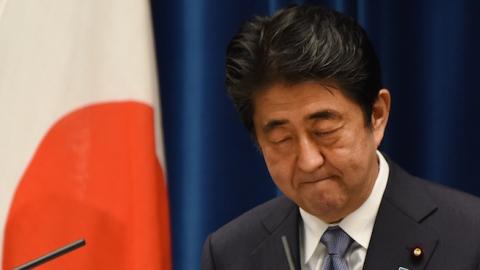"Let us pray that peace be now restored to the world and that God will preserve it always. These proceedings are closed."
That was how Gen. Douglas MacArthur concluded the solemn ceremony held 70 years ago on the deck of the USS Missouri, ending the bloodiest war in history with the surrender of Japan. Delegates from 10 nations, including China and what was then the Soviet Union, watched as Japanese diplomats signed the surrender document, while 400 B-29 bombers and 1,500 Navy planes flew over the Missouri and 280 other Allied warships anchored in Tokyo Bay.
MacArthur's remarks were more than empty diplomatic boilerplate. They stressed that the surrender was more about restoring peace than a broken enemy's capitulation. His words sent a signal to the Japanese and the world that the postwar period would be about healing -- not punishment or recrimination -- and about reintegrating Japan into the community of peaceful nations.
As it happened, 1945 fell almost exactly 70 years after the start of the so-called Meiji Restoration, Japan's first bid to enter the modern world and take up Western ideas and technology. That effort had ended in blood and tragedy, as Imperial Japan used those tools to brutalize and oppress its neighbors -- as MacArthur himself noted in his speech to his countrymen afterward.
However, he assured them, "If the talents of the [Japanese] race are turned into constructive channels, the country can lift itself from its present deplorable state into a position of dignity."
MacArthur's prediction stands fulfilled. Japan has been transformed from an expansionist, imperialist power into a thriving, peaceful democracy. In seven decades it has gone from being the terror of Asia to an invaluable pillar of global stability and prosperity.
Just before the signing ceremony, MacArthur had also said, "It is my earnest hope, and indeed the hope of all mankind that from this solemn occasion a better world shall emerge out of the blood and carnage of the past."
Sadly, that promise has not been fulfilled, even in certain corners of Asia today. Yet that has not been Japan's fault. Instead, Japan today stands as a model of how "the blood and carnage of the past" can be redeemed, by living in peace and pursuing constructive engagement.
China's track record
Many who will soon gather in Beijing for a World War II victory parade have called on Japan and its prime minister, Shinzo Abe, to apologize for actions committed when the vast majority of Japanese were not yet born, under a political system that ceased to exist seven decades ago. They ignore the positive role Japan has since played in Asia and the world.
This is not only regrettable but ironic. If there is any country that needs to apologize for its destructive actions and brutal treatment of its neighbors over the 70 years since 1945, it is not Japan but the host of the celebrations -- China.
It would behoove China, for example, to apologize for encouraging the North Korean invasion of South Korea in 1950, triggering a war that cost the lives of millions of Koreans and nearly turned the Cold War into a hot nuclear one.
It could apologize to the world for its brutal annexation of Tibet, its precipitous invasion of Vietnam in 1979 and its repeated threats and clashes with its neighbor India.
It could certainly apologize for enabling a series of rogue and unstable nations to acquire nuclear weapons technology, including North Korea, Pakistan and Iran.
China could also apologize for the decades of crimes against humanity it has committed on its own people, from the Great Leap Forward to the Cultural Revolution, costing tens of millions of lives.
Finally, one could argue China owes the world apologies for its ongoing campaign of cyberattacks -- including against Japan and the U.S -- and for its recent bullying of neighbors in the South and East China seas. All this has occurred as China builds a vast arsenal of nuclear ballistic missiles and introduces weapons into outer space.
A moment to reflect
Seventy years ago, the U.S. took the lead in guiding Japan back into the Asian community, and making it a prosperous, democratic and humane country. Today, the country looking for that guidance should be China.
The surrender anniversary is being celebrated across the Asia-Pacific region, including on the deck of the USS Missouri at its new home in Pearl Harbor. But this should be a moment for sober reflection on China's part, rather than Japan's.














